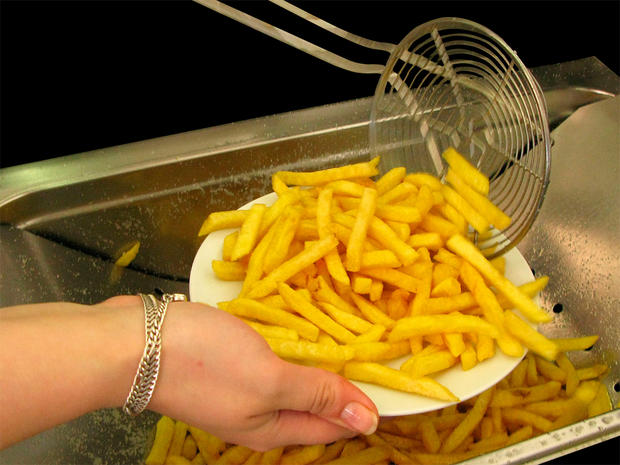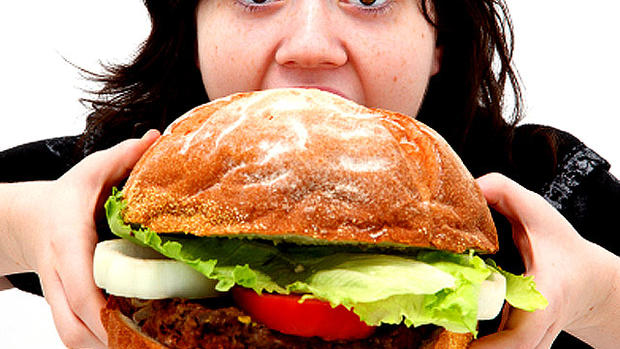Fast food salt content varies worldwide, U.S. highest
(CBS News) Not all fast food is created equally when it comes to salt, according to a new international study of fast food chains. The study found salt content among popular fast food items vary by country for six of the most popular fast food chains in the world.
PICTURES: Burger breakdown: Best and worst
Burger King, Chili's, IHOP among restaurant chains to make healthier kids' meals
Pizza Hut unveils hot dog stuffed crust pizza, Burger King offers bacon sundae
For example, the researchers found salt concentrations are 2.5 times higher in U.S. "Chicken McNuggets" than their British counterparts, Canadian researchers said.
"We saw marked variability in the reported salt content of products provided by major transnational fast food companies," Dr. Norman Campbell, professor of medicine at the University of Calgary, wrote in the study, published in the April 16 issue of the Canadian Medical Association Journal.
For the study, researchers collected salt content data from fast food chains Domino's Pizza, Kentucky Fried Chicken, McDonald's, Pizza Hut, Subway and Burger King restaurants that were operating in Australia, Canada, France, New Zealand, the U.K. and U.S. (Burger King is called "Hungry Jack's" in Australia). The researchers compared salt content among seven types of food: savory breakfast items, burgers, chicken products, pizza, salads, sandwiches and of course, french fries.
What did they find? Fast foods in the U.K. had the lowest amount of salt overall, the researchers said, while fast food in the U.S. had the highest.
Other notable findings the researchers saw were a Subway "Club Sandwich" contains more than twice the amount of salt in the U.S. and Australia as it does in France. A "Double Whopper" in Australia, the U.S. and New Zealand contains more salt than it does in the U.K. and Canada. Across all fast food chains studied, french fries in Canada contain on average more than twice as much salt as they do in France and the U.S.
The low salt levels across the board in the U.K. may be "a consequence of industry's active participation in salt reduction efforts in that country," the researchers wrote.
The researchers say if fast food companies cut salt intake from their meals, they could reduce the same amount of deaths as people who partake in another nasty habit.
"Recent estimates suggest that the numbers of deaths averted by moderate reductions in population salt consumption would be at least as many as those achieved by plausible reductions in population smoking rates," the researchers wrote. They recommend fast food chains cut salt gradually over several years to minimize consumer backlash.
McDonald's spokesperson Danya Proud downplayed the findings, telling MyHealthNewsDaily that the study looked at 2010 data and since then, the company has reduced salt levels in its U.S. chicken products by 10 percent. By 2015, the company also plans to reduce salt levels in all U.S. products by 15 percent, Proud said.
The researchers also admitted study limitations, saying that all the salt contents were obtained through fast food company websites, which may contain inaccurate information. They also said fast food chains aren't the only source of salt in many diets worldwide.
"Yes, salt in fast food is very high but if you went to an expensive restaurant, the sodium levels would be very high," Campbell told Reuters. "If you buy packaged foods, the levels would often be very high."
ChooseMyPlate.gov has more on healthy eating habits.


